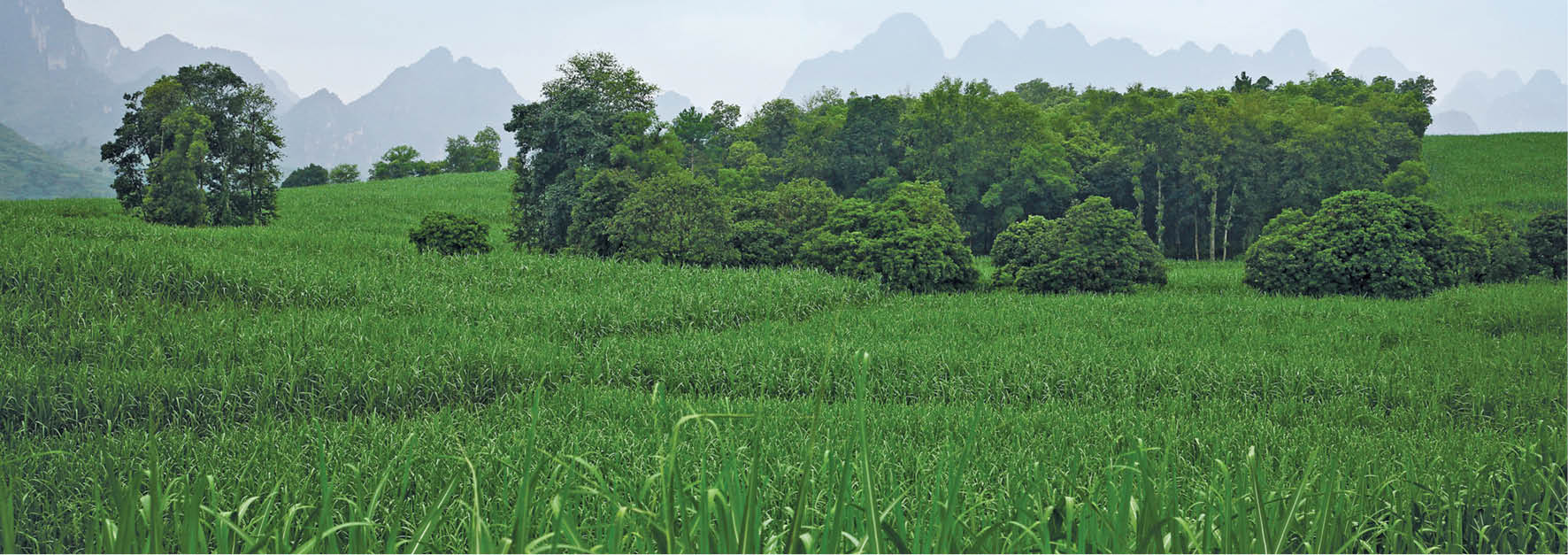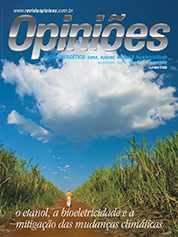Mario Lindenhayn
President of BP Biofuels Brasil
Op-AA-22
Brazil will play an important role in the current and future scenario
The question raised today is what role ethanol and bioelectricity can play in mitigating climate change. To set that into context, it is worth first giving a short reminder of why, as a global oil and gas company, we have chosen to move into biofuels as a major part of our global alternative energy portfolio. BP (British Petroleum) is responding to two major trends that are impacting the energy sector.
The first, of course, is a drive for greater energy security in a market where demand is increasing and supply is under pressure. And the second is the urgent need to address the risk of climate change by reducing global greenhouse gas emissions. The need for change is particularly apparent in transport fuel: more than 60% of the world’s oil goes into transport.
More than 90% of the world’s transport fuel is made from oil. The transport sector accounts for around 20% of global greenhouse gas emissions and it is growing fast – by 2030 the number of passenger cars on the road is expected to double to 1.4 billion. And while there are many options for decarbonising power generation – such as nuclear, wind and solar - transport has fewer options to play with.
At BP, we believe that biofuels are the only viable solution to provide safe, scalable and competitive low-carbon energy for transport. And of course, the investment in agriculture which is implicit in biofuel production will have a powerful effect on improving rural livelihoods, both in the developing and developed worlds.
This helps explain why regulators around the world have taken to biofuels with some enthusiasm, demanding significant growth in this industry. Brazil has led the world in creating a sustainable fuels industry, becoming the largest producer and consumer of sugarcane ethanol and the largest exporter of ethanol globally. This has been the result of a strong policy framework which has driven innovation, enterprise and growth – in fact a model for encouraging clean and safe energy worldwide.
With 92% of all new cars sold here now having ‘flex fuel’ capability, around 600 million tonnes of CO2 have been avoided since the start of the “Proálcool” programme. The international energy agency projects 26% of transport fuels globally coming from biofuel by 2050. And at BP, we believe that even higher penetration rates could be possible, with the right level of investment in advanced technologies and in infrastructure development.
Since BP’s biofuels business was formed in 2006, we look for opportunities that make material contributions to energy security and material reductions in greenhouse gas emissions. We will use sustainable feedstock which has the potential to help reverse underinvestment in agriculture. And we will develop advanced technologies to make good biofuels even better.
Of the plethora of potential future technologies – photosynthetic algae, gasified biomass, etc, we believe that the technologies most likely to continue to meet our selection criteria are those that involve the conversion of low cost, low carbon, sugars. Sugarcane will always be competitive. And we will need to convert these sugars into the fuel molecules that the world’s transport fleet needs. This means bioethanol and biodiesel, but also the new fuel molecule, biobutanol.
Last year, BP made a large investment in Brazilian biofuels and our joint venture, Tropical BioEnergia has been producing ethanol for just over a year. The investment in Tropical BioEnergia is a first step for us. BP’s ambition is to be a major player in this industry. We have also started as we mean to continue in terms of sustainability, which is a key value at BP. At our joint venture refinery, apart from producing a very clean fuel, the cane is grown on existing plantations and on under-utilised pasture land.
Water comes from rain-fed irrigation and trees are being planted to minimise soil erosion and promote biodiversity. The refineries will also generate bioelectricity using waste bagasse and we expect them to sell at least 30MW of surplus power into the grid. From BP’s perspective, biofuels are the only material choice the world has to deal with climate change in transport fuel in the short-to-medium term. In Brazil, ethanol and bioelectricity from bagasse play a key role today. Biobutanol and biodiesel from sugar will join this effort to reduce GHG emissions in the future.The good news: Brazil will have a significant role in this play and we are committed to help in the transition to a low carbon future.





